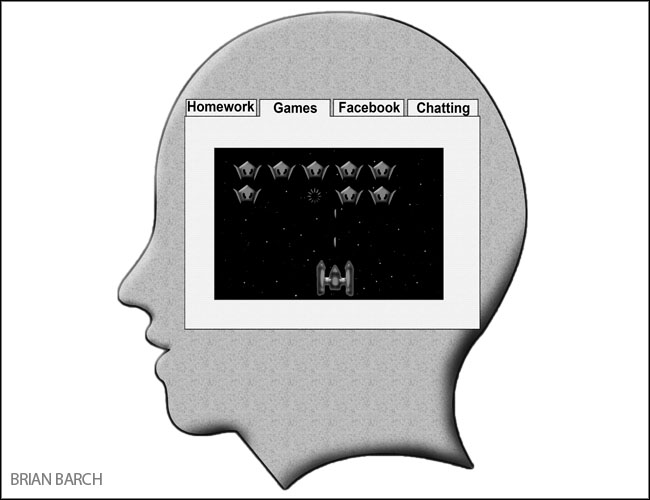
With homework, television, music, instant messaging, and the vast resources found on the internet, the modern student has a wide range of passive activities that can be done at the same time. This has led to multitasking on an exceedingly large scale, nearly enough to make it considered part of the modern student culture.
“Sometimes I work and listen to music and watch TV while doing homework,” says sophomore Monica Yip.
“I do it all the time,” adds senior Elizabeth Steffen, “I’ll be doing homework, playing a game, listening to music, and talking to my sister.”
But is multitasking really as useful a skill as many students seem to think?
“I think it lets people feel like they’re accomplishing more, but at the same time, I think every study ever done on multitasking says it’s basically a myth, that you can’t fully concentrate on more than one thing at a time; you’re better off breaking up your work into segments” says Carlo Corti, Aragon’s AP Psychology teacher.
Indeed, the American Psychological Association (APA) has found that all the decision making tasks necessary for Facebook, games, talking, and doing homework require the same parts of the brain, collectively referred to as the “mental CEO”, because they manage the brain’s resources and priorities. What this means is that no one ever truly does multiple tasks at once. Instead, their brain switches quickly between the tasks. But switching takes time, as the mental CEO must reorient its rules and goals for each new task, which makes multitasking innately inefficient.
The tendency to multitask can be a problem for anyone trying to finish their work in a timely manner, especially a homework-laden student. There are solutions though: most distractions tend to be technological, so simply shutting down the computer, or even disconnecting the internet, can greatly reduce the risk of multitasking. For work that requires the use of the internet, browsers have made multitasking-protection add-ons, such as StayFocusd by Google Chrome, or Firefox’s LeechBlock, which limit the user’s time on distracting websites.
There are also tech-free methods: “for one task or one assignment or one project, you focus on this one thing, and try to just focus on the thing and see how fast it goes” offers Mr. Corti. Another mental method is to set short deadlines for work completion, which can help maintain a feeling of urgency on a task.
Fortunately, listening to music doesn’t have to compete with work. For more on this topic, be sure to read next month’s feature on the utility of music.




